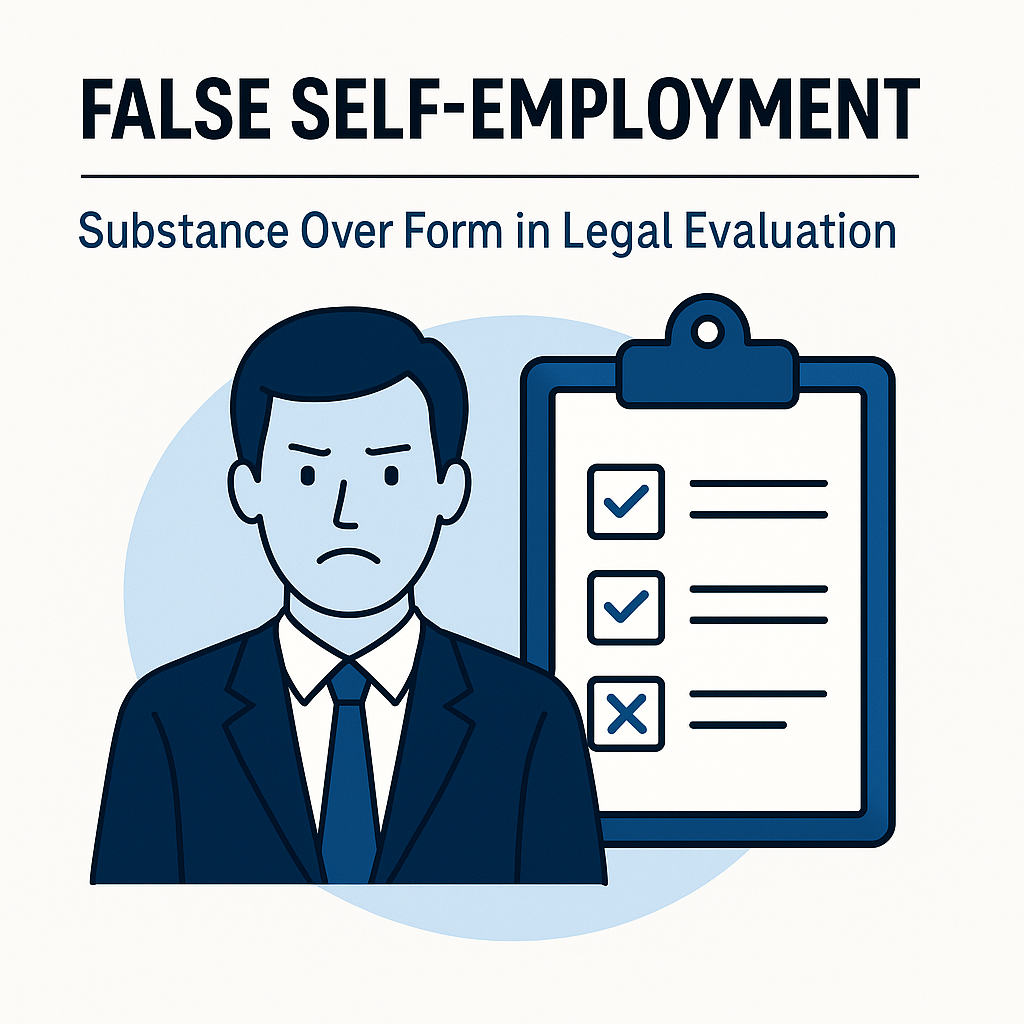
What Is the “Švarcsystém”?
The term “švarcsystém” in Czech law refers to false self-employment — a situation where an individual is officially self-employed (typically as an OSVČ), but in practice performs work under the same conditions as an employee. Although such a setup may seem flexible or tax-efficient, it is illegal and strictly monitored by Czech labour and tax authorities.
Who Is at Risk?
This issue concerns both:
Freelancers or contractors who work in long-term supervised relationship with their client;
Companies that engage self-employed persons under conditions that mimic regular employment.
Even if the relationship is formally structured through contracts and invoicing, authorities and courts will evaluate the actual working conditions.
Key Indicators of False Self-Employment
The Czech Labour Inspectorate and Tax and Insurance Authority consider several key factors when assessing the nature of a business relationship:
The contractor works under direct supervision or instructions;
Working hours and location are set by the client;
The contractor uses the client’s tools, systems, or branding;
The relationship is long-term and exclusive;
The contractor is integrated into the client’s organisational structure;
There is no entrepreneurial risk, no subcontracting, and no autonomy.
These conditions suggest that the contractor is functioning as an employee, despite having self-employed status.
What Do the Courts Say?
Czech courts, particularly the Supreme Administrative Court (Nejvyšší správní soud), have repeatedly emphasized that what matters is the actual substance of the relationship — not how it is formally described in contracts or invoices. The key question is whether the individual truly operates as an independent entrepreneur, or whether they are in fact functioning under conditions typical of employment.
Rather than focusing on a single indicator, the courts evaluate a combination of factors, such as:
The individual’s autonomy in how, when, and where they perform the work;
Whether the person bears entrepreneurial risk;
The use of independent tools and resources;
Responsibility for outcomes and the ability to subcontract;
And whether the person is integrated into the internal structure of the company.
In short, it’s not the form of the cooperation, but the reality of the working relationship that determines whether it falls under the category of false self-employment. Even seemingly compliant setups can be reclassified if the individual operates more like an employee than a contractor.
Legal and Financial Risks
If false self-employment is established, consequences can be severe for both parties:
For the company:
Fines up to CZK 10,000,000;
Obligation to pay retroactive social and health insurance contributions and payroll tax;
Potential reclassification of all similar contractor relationships.
For the contractor:
Loss of deductible business expenses;
Reassessment of tax obligations;
Increased risk of future tax audits.
How to Stay Compliant
To reduce the risk of being classified as a false self-employment case:
Ensure clear contractual independence and project-based work;
Use your own tools, systems, and branding;
Avoid fixed schedules or mandatory on-site presence;
Maintain the freedom to refuse work or subcontract;
Structure relationships with clear deliverables and scope of services.
Need Help Assessing Your Setup?
If you’re currently self-employed and work mainly with one client, it’s worth reviewing the relationship from a legal and tax perspective. While exclusivity alone is not automatically problematic, you should evaluate your level of independence and operational setup.
Feel free to contact us if you’d like a consultation or a contract review.

